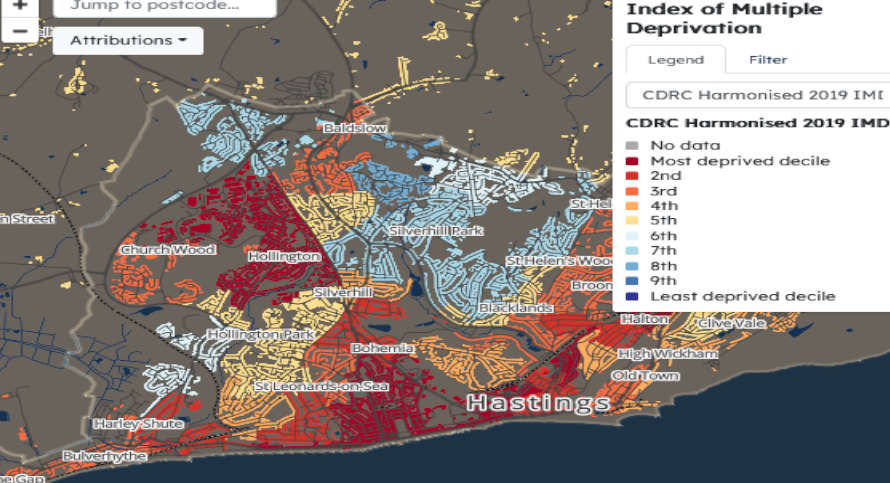
The number of fuel vouchers issued during 2024 highlights the continuing problem of fuel poverty in East Sussex and the need to rapidly insulate local properties where fuel-poor tenants live, according to local community energy co-op Energise Sussex Coast (ESC). The residents of large numbers of these properties will soon become eligible to apply for government grants of up to £15,000 to improve their energy efficiency.
Over 1,170 fuel vouchers – worth over £69,000 – were issued last year as a result of referrals from ESC's free energy advice service, mostly to households in Hastings and Eastbourne. A form of emergency support, the vouchers are issued to people at risk of being without power because they can't afford to top-up their meters.
According to an April a report from the Department for Levelling Up, Housing & Communities Hastings 'has the highest percentage of fuel poor households in the South East'. The report drew particular attention to the low energy efficiency standards of privately-rented properties in Hastings, which make up a disproportionate number of dwellings in the town: 29.6% compared with the national average of 17.3%.
In England a household is currently defined to be fuel poor if they are on a low income and cannot keep their home warm at a reasonable cost. In August, the Government's Committee on Fuel Poverty noted that progress on eliminating fuel poverty had effectively stalled since 2019. Some 3.17 million English households (13% of all households) were estimated to be fuel-poor in 2023 – a figure almost identical to that for 2019.
The August report identified the three 'central drivers' of fuel poverty as low incomes, energy prices and cold homes, noting that 'targeted energy efficiency programmes are central to reducing fuel poverty'.
The UK's housing stock is notoriously leaky and draughty, with roughly half of the UK's 27 million homes falling below a good level energy efficiency rating (an ‘EPC rating’ of C).
However, the report also said that the main current government scheme to increase the energy efficiency of UK homes (the so-called Energy Company Obligation) is 'barely scratching the surface' of fuel-poor households, often focussing on measures such as heating controls that are 'ineffective at delivering substantially warmer homes', rather than insulation.
The government has committed to improving the energy efficiency of five million homes in the next five years. Under its 'Warm Homes: Local Grant' scheme – which is due to open next April – eligible properties could receive up to £15,000 towards energy efficiency measures such as insulation.
Significantly, the scheme will be open to all energy-inefficient properties (whether privately-rented or privately-owned) with postcodes in the bottom 20% of Indices of Multiple Deprivation (IMD) nationally, and so will apply to a large proportion of properties in Hastings and Eastbourne. In 2019, almost a third of Hastings' 53 neighbourhoods were ranked in the bottom 10% of IMD, with two (in Baird and Tressell) among the most deprived 1%. Likewise, roughly 20% of neighbourhoods in Eastbourne were in the bottom 20% of IMD.
Energise Sussex Coast director Kate Meakin said: 'Everyone should have a right to a home that is warm and dry in the winter. Yet the fact that our energy advice service alone generated over £69,000-worth of fuel vouchers in 2024 is testament to the persistence of fuel poverty locally. Dealing with the underlining causes of this means insulating houses. Yet, confronted by a bewildering array of different schemes and / or the obstacles created by private tenancies, many fuel-poor households have thus far been unable to access support necessary to do this. As the government's new Warm Homes scheme becomes available next year we urge local residents – whether landlords or tenants – to make contact with us so that we can offer them free help to navigate the new system and work together get to the root of fuel poverty in East Sussex.'
Founded in 2012, local community benefit cooperative Energise Sussex Coast works to tackle the climate crisis and energy injustice through community-owned renewable power and energy-saving schemes. It runs a free Energy Advice service to help local residents bring down the cost of their electricity, gas and water bills: 01424 390 062. Its sister coop, Energise South, has raised community investment to finance and install solar arrays on eight community buildings, including Baird Primary School and St Leonards Academy.
 The BIG Futures Show - jobs and careers event on Tuesday 29 April
The BIG Futures Show - jobs and careers event on Tuesday 29 April
 Bandstand Launches Season With Sell Out Show & Free Easter Concert
Bandstand Launches Season With Sell Out Show & Free Easter Concert
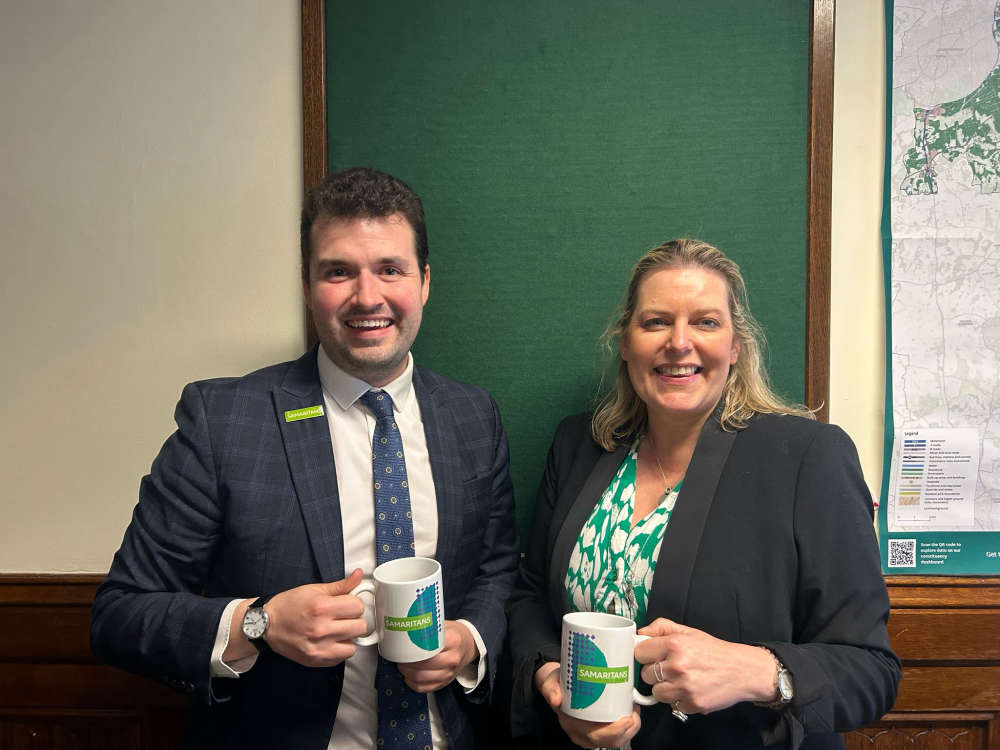 Mims Davies MP meets with Elliot Colburn from The Samaritans team on how to better support the charity
Mims Davies MP meets with Elliot Colburn from The Samaritans team on how to better support the charity
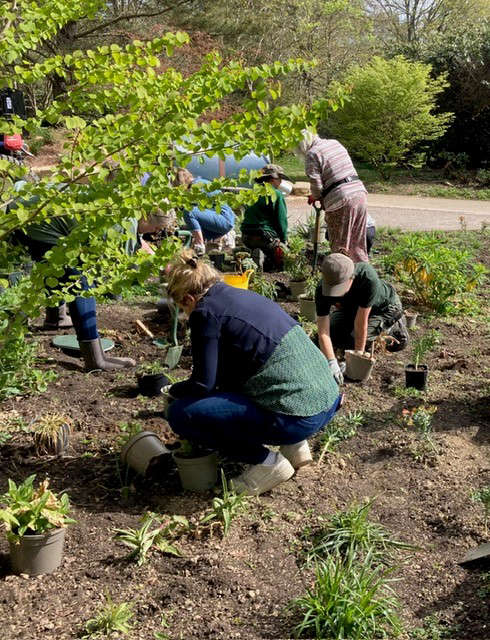 Mims Davies MP at Sheffield Park and Garden Volunteering with the team
Mims Davies MP at Sheffield Park and Garden Volunteering with the team
 Disabled children at Chailey perform triathlon for their own school
Disabled children at Chailey perform triathlon for their own school
 Youngsters complete hospice volunteer programme
Youngsters complete hospice volunteer programme
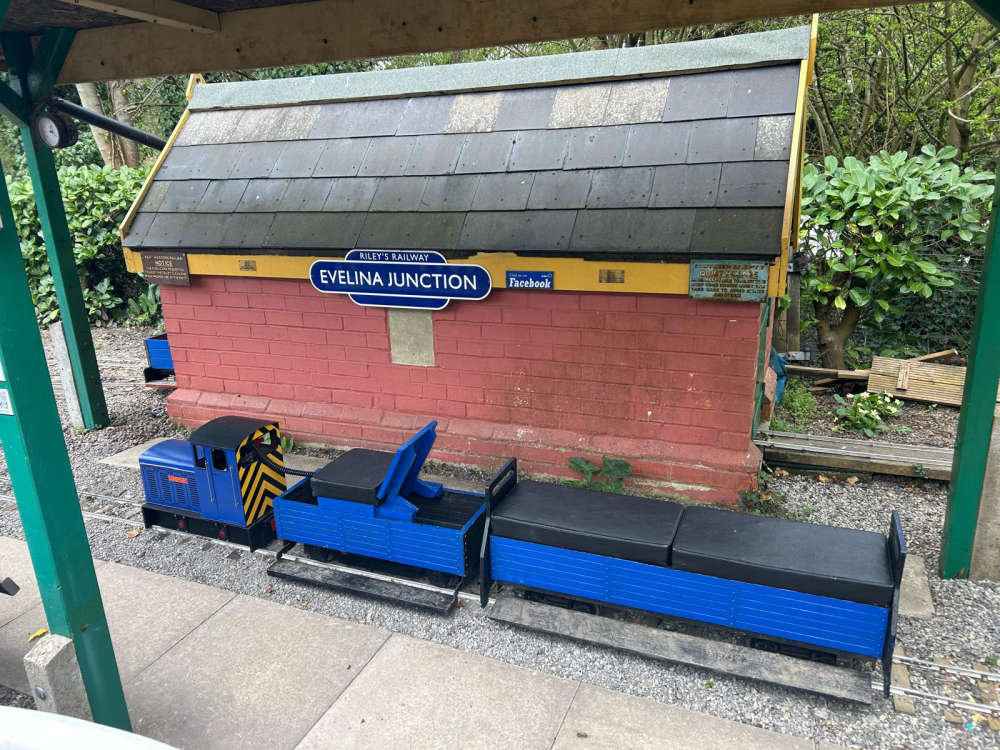 Mims Davies MP starts recess in Isfield on Riley's Miniature Railway
Mims Davies MP starts recess in Isfield on Riley's Miniature Railway
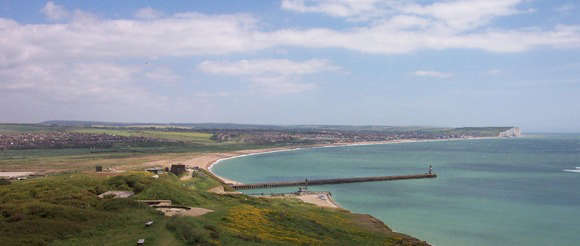 Lewes District Council calls for public feedback on Lewes Air Quality Action Plan
Lewes District Council calls for public feedback on Lewes Air Quality Action Plan






